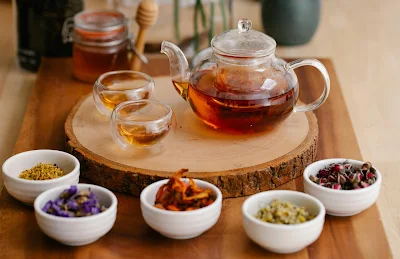Chronic kidney disease (CKD) requires careful management, and many people turn to herbal remedies for additional support. While some herbs may provide benefits, others can be dangerous for kidney health.
This guide explores safe herbal options for CKD, herbs to avoid, and how to integrate natural remedies into a kidney-friendly lifestyle.
Can Herbal Remedies Help CKD?
Herbal medicine has been used for centuries, and some natural remedies may support kidney function, reduce inflammation, and help manage CKD symptoms. However, certain herbs can be toxic to the kidneys or interact negatively with medications.
Before using any herbal remedy, always consult your doctor or a registered dietitian specializing in CKD.
Safe Herbal Remedies for CKD
The following herbs are generally considered safe and may offer benefits for kidney health:
1. Ginger
✅ Benefits: Reduces inflammation and nausea, supports digestion.
✅ How to Use: Fresh ginger tea, powdered ginger in food, or ginger supplements (doctor-approved).
2. Turmeric (Curcumin)
✅ Benefits: Has anti-inflammatory and antioxidant properties.
✅ How to Use: Add turmeric to meals or take curcumin supplements (low-dose).
3. Dandelion Root
✅ Benefits: Acts as a mild diuretic, promoting urine production.
✅ How to Use: Dandelion root tea (avoid if on diuretics or blood thinners).
4. Marshmallow Root
✅ Benefits: Soothes the urinary tract and may help with inflammation.
✅ How to Use: Herbal tea or supplement form.
5. Astragalus
✅ Benefits: May support kidney function by reducing proteinuria (protein in urine).
✅ How to Use: Traditionally used in Chinese medicine as a tea or extract.
6. Nettle Leaf
✅ Benefits: Contains vitamins and minerals that support kidney health.
✅ How to Use: Brew as tea (in moderation).
Herbs to Avoid with CKD
Certain herbs can be harmful to the kidneys, especially for those in later CKD stages.
🚫 1. Licorice Root – Can cause high blood pressure and fluid retention.
🚫 2. Aloe Vera – May cause dehydration and electrolyte imbalances.
🚫 3. Ginseng – Can increase heart rate and blood pressure, stressing the kidneys.
🚫 4. Parsley – High in potassium, which can be dangerous for CKD patients.
🚫 5. St. John’s Wort – Interferes with kidney medications and increases sun sensitivity.
🚫 6. Horsetail – A diuretic that can lead to excessive fluid loss and kidney stress.
How to Safely Use Herbal Remedies for CKD
✅ Check with Your Doctor – Always discuss herbs with your nephrologist or dietitian.
✅ Use in Moderation – Even safe herbs should be consumed in controlled amounts.
✅ Monitor Potassium & Phosphorus Levels – Some herbs can increase mineral levels, worsening CKD.
✅ Avoid Herbal Detoxes – Many detox products contain kidney-damaging ingredients.
✅ Read Labels Carefully – Some herbal blends include hidden toxic ingredients.
Best Amazon Products for Herbal Support
🌿 Organic Turmeric Powder – Supports inflammation reduction.
🍵 Dandelion Root Tea – A mild diuretic to support kidney function.
🥄 Ginger Supplements – Helps with digestion and inflammation.
📖 Herbal Medicine Guidebook – Learn about safe herbs for CKD.
Conclusion
Herbal remedies can be a valuable addition to CKD management when used correctly. Ginger, turmeric, dandelion root, and nettle leaf may offer benefits, while herbs like licorice, aloe vera, and horsetail should be avoided.
Always consult your doctor before using herbs, and focus on a balanced, kidney-friendly diet to support overall health.
Join Our Chronic Kidney Disease WhatsApp Channel!
Get expert tips, natural remedy guides, and CKD support. Click here: Join Our WhatsApp Channel
For personalized CKD advice, email me at admin@healthyspell.com.
Common Questions Answered in This Post
- What are the best herbal remedies for CKD?
- Which herbs should CKD patients avoid?
Related Content:
- The Benefits of Acupuncture for CKD Patients
- The Rise of Kidney Disease in Young Adults: New Research Findings
- The Connection Between Kidney Disease and Hair Thinning
- Fertility in CKD Patients: What the Latest Research Says

0 Comments
Post a Comment
Share your views